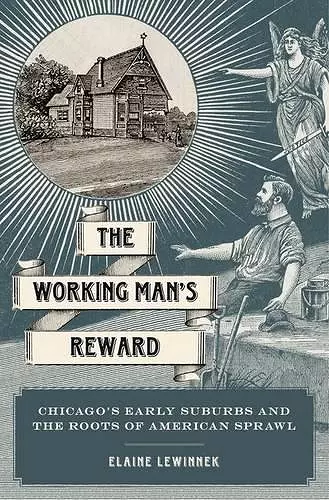The Working Man's Reward
Chicago's Early Suburbs and the Roots of American Sprawl
Format:Hardback
Publisher:Oxford University Press Inc
Published:5th Jun '14
Currently unavailable, and unfortunately no date known when it will be back

Between the 1860s and 1920s, Chicago's working-class immigrants designed the American dream of home-ownership. They imagined homes as small businesses, homes that were simultaneously a consumer-oriented respite from work and a productive space that workers hoped to control. Leapfrogging out of town along with Chicago's assembly-line factories, Chicago's early suburbs were remarkably diverse. These suburbs were marketed with the elusive promise that homeownership might offer some bulwark against the vicissitudes of industrial capitalism, that homes might be "better than a bank for a poor man," in the words of one evocative advertisement, and "the working man's reward." This promise evolved into what Lewinnek terms "the mortgages of whiteness:" the hope that property values might increase if that property could be kept white. Suburbs also developed through nineteenth-century notions of the gendered respectability of domesticity, early ideas about city planning and land economics, as well as an evolving twentieth-century discourse about the racial attributes of property values. Because Chicago presented itself as a paradigmatic American city and because numerous Chicago-based experts eventually instituted national real-estate programs, Chicago's early growth affected the growth of twentieth-century America. Framed by two working-class riots against suburbanization in 1872 and 1919, spurred from both above and below, this work shows how Chicagoans helped form America's urban sprawl and examines the roots of America's suburbanization, synthesizing the new suburban history into the diversity of America's suburbs.
In her outstanding new book ... Elaine Lewinnek explores the fascinating complexity of how Chicago's suburbs have been defined and how they have evolved ... Lewinnek has written one of the best books about Chicago in a long time, and reading it will reward any working or thinking man or woman interested in Chicago, or its suburbs, old or new. * Chicago Tribune *
ISBN: 9780199769223
Dimensions: 155mm x 229mm x 28mm
Weight: 567g
250 pages